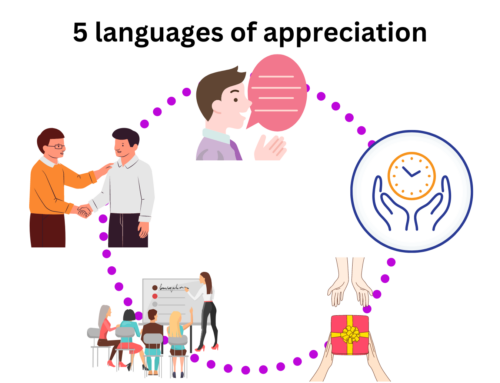Life isn’t perfect and we need to be resilient to handle all the hurricanes that it brings. However, what is psychological resilience? There are many definitions of resilience in psychology. I put together some of them and this is the definition that I like the most:
Psychological resilience is an ability to remain calm during the crises, bounce back from adversities, and grow from challenges.

What does this definition want to say? When we are going through difficult times, we are able to stay calm instead of feeling excessively stressed, nervous, angry, sad, depressed or overwhelmed. Whenever something bad happens to us, we get quickly back on track. Furthermore, we are able to learn and grow from the though experience, and therefore become better versions of ourselves. Sometimes in a simple way I say: “Whatever happens, I feel good.”
To understand a little bit more how it feels to be resilient, during my coaching sessions I invite my clients to do a little exercise. Let’s do it together now: Choose one situation you are currently struggling with and where you would like to be more resilient. It can be a small problem or something more significant to you, it doesn’t matter as soon as you choose just one situation. Focus only on this one and no other. When you pick one situation, you will close your eyes and imagine that a magical fairy came by and gave you the power of being super resilient. Now, you  will go through the situation with this super resilience you have just received. Imagine the situation as detailed as you can. Where are you? What are you doing? Who is there? What is happening? What are you saying? And more importantly while going through the situation keep asking yourself: how am I feeling? When you finish this exercise, try to remember all the feelings you had and write them down. This is how being resilient feels like for you.
will go through the situation with this super resilience you have just received. Imagine the situation as detailed as you can. Where are you? What are you doing? Who is there? What is happening? What are you saying? And more importantly while going through the situation keep asking yourself: how am I feeling? When you finish this exercise, try to remember all the feelings you had and write them down. This is how being resilient feels like for you.
During this exercise my clients say things like: I feel safe, good, in my power, confident, like fish in the water, natural, authentic, anchored, fulfilled, directed, satisfied, great, connected, rested, with zest, immersed, alive, fearless, human. I relate to my resources. I am able to face up the people. I plan my actions. I use humor as an ice breaker. I know what to do. I know what to say. This imagination helps us to understand the term resilient and how being resilient feels.
Being resilient is beneficial in many areas of our lives. A resilient employee is better able to solve problems, is more productive, works more effectively, has good relationships, avoids conflicts, is healthier and less prone to get sick and miss work. A resilient leader makes better decisions, avoids costly mistakes, listens to his subordinates, manages his or her teams more effectively, and is less prone to burn out. A resilient spouse is better able to keep harmonic family, fights less, is less luckily to get a divorce and raises confident and resilient kids. These are just a few benefits that resilience brings.
The great news is that despite of the fact that some individuals are born more or less resilient, resilience can be built. There isn’t any magical fairy that would make you resilient overnight, however, with knowledge, understanding, awareness and practice you can be more resilient every day. Thanks to the research done in Positive Psychology and other cognitive sciences, I have been able to build my own resilience and now I am happy to help my clients to build their resilience during our coaching sessions.
Author: Pavla Belostikova, Master of Human Decision Science




